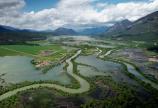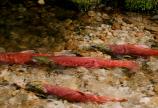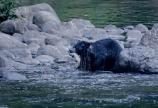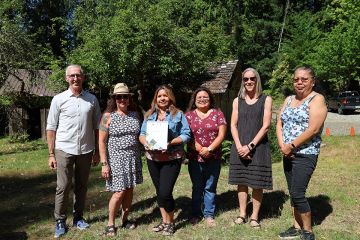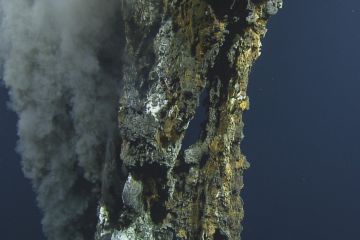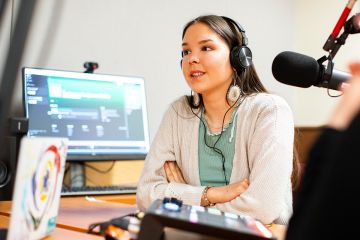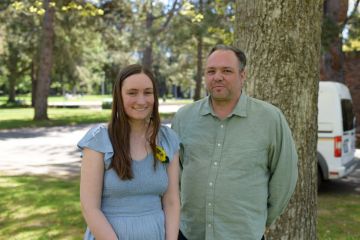World Water Day film screening

Water may not need a passport to cross the border, but that doesn’t mean that fresh water has been free to do what’s necessary to sustain life.
The POLIS Project on Ecological Governance is hosting a film screening and conversation at the University of Victoria to showcase the importance of freshwater management and governance in celebration of World Water Day.
Changing Course: A River’s Journey of Reconnection will premiere on March 21 at the UVic showcasing shifts observed with the Columbia River—a transboundary river deemed critically important for its cultural, social, economic and ecological values.
“The Columbia River and Columbia River Treaty renegotiation process offer lessons that can be applied to all international watersheds around the world. This film tells the history of the Columbia—the good, bad, ugly, and the actions needed to improve its ecosystem health to make it more resilient to the changing climate.”
- Jon O’Riordan, strategic water policy advisor to the POLIS Water Sustainability Project and co-producer of the film
The film explores the degradation of the Columbia River, which was once one of the most productive salmon rivers in the world. It looks at the dams and storages that eliminated wild salmon from the main stem of the river in Canada, and how this loss cut the heart out of Indigenous culture throughout the basin. The film also touches on the Columbia River Treaty, which came into force between Canada and the United States in 1964, when flood control and hydropower were top-of-mind issues.
In Changing Course, leading voices from Indigenous and non-Indigenous communities express the need for new approaches to water management and governance that are more connected to nature, account for climate change, and meaningfully include Indigenous leadership.
Conservation ecologist and technical advisor with the Upper Columbia Basin Environmental Collective Greg Utzig, Cowichan Tribes Director of Lulumexun-Lands and Self-Governance Larry George, and Peninsula Streams and Shorelines senior aquatic biologist Katrina Adams will engage in a conversation about the film and freshwater management and governance following the screening.
March 22 has been proclaimed World Water Day by the United Nations, and the theme for 2024 surrounds water for peace.
“When I think about water for peace, I think about the really challenging work of relationship-building and figuring out new governance approaches—approaches where human and ecological well-being are recognized as fundamental to healthy watersheds,” says Laura Brandes, communications director at the POLIS Project on Ecological Governance, who will be moderating the event. “This hard work is happening in communities across BC and our guest speakers for this event are all doing really different and really good work for the future of water and watersheds.”

The Columbia River was once one of the most productive salmon rivers in the world. Credit: BohdanDoval.com
The screening will take place on Thursday, March 21 at 6:30 p.m. in Room B150 of the Bob Wright Centre at UVic. RSVP to attend the film screening in-person by sending an email to polisworkstudy@uvic.ca. For those looking to take part via live-stream, registration is online.
The film screening is presented by UVic and POLIS alongside CIFAL Victoria, UNITAR, Watershed Watch Salmon Society, CreativelyUnited.org, Environmental Law Centre and Borders in Globalization.
The film screening aligns with United Nations Sustainable Development Goal 6 Clean Water and Sanitation, 13 Climate Action, 14 Life Below Water, and 15 Life on Land, in addition to being aligned with UVic’s work towards climate traction.
-- 30 --
About the University of Victoria
UVic is one of Canada’s leading research-intensive universities, offering life-changing, hands-on learning experiences to more than 22,000 students on the edge of the spectacular BC coast. As a hub of transformational research, UVic faculty, staff and students make a critical difference on issues that matter to people, places and the planet. UVic consistently publishes a higher proportion of research based on international collaborations than any other university in North America, and our community and organizational partnerships play a key role in generating vital impact, from scientific and business breakthroughs to achievements in culture and creativity. Find out more at uvic.ca. Territory acknowledgement
Follow us on X: @uvicnews
UVic media relations & services: www.uvic.ca/communicationsmarketing/media
Photos
Videos
Media contacts
Simone Blais (University Communications + Marketing) at 250-863-0633 or uvicnews@uvic.ca
In this story
Keywords: Indigenous, sustainability, biodiversity, climate, community, environment, fisheries, forestry, international, politics, reconciliation, research, sustainability, water

